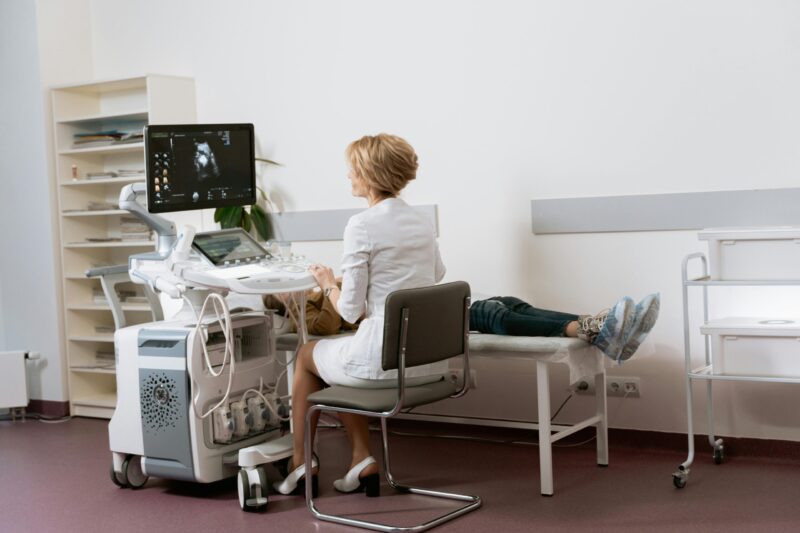Advertisements
If you’re trying to get pregnant, you’re probably looking for strategies to improve your chances of conception. Pregnancy occurs when sperm fertilizes an egg in the fallopian tube. You have a better chance of becoming pregnant during ovulation when your egg is ready for fertilization. However, certain lifestyle choices can have an impact on your chances of getting pregnant.
In this article, we will look at 7 healthy tips to increase your chances of getting pregnant. Whether you’re married or single and looking for babies, these tips can increase your chances of conception. So, if you’re ready to start your journey to parenthood, keep reading for helpful suggestions.
7 Healthy Tips to increase your chances of getting pregnant
1. Take Prenatal Vitamins
It is advised that you start taking prenatal vitamins before trying to get pregnant. In addition to ensuring that you and your unborn child receive the nutrition you need, prenatal vitamins help your body become ready for pregnancy. To improve the likelihood of becoming pregnant and to ensure that the unborn child develops normally and without birth defects, the Centers for Disease Control and Prevention advise women to take 400 mcg of folic acid daily for at least one month before getting pregnant.
2. Eat Nutritious Food
Another crucial piece of advice for anyone trying to conceive is to eat a nutritious diet. Certain essential nutrients can raise your chances of getting pregnant, even though there is no special diet for pregnancy. Iron, calcium, and protein are essential for women who are attempting to conceive. Consuming an abundance of fruits, vegetables, nuts, and whole grains is required.
3. Monitor your ovulation and engage in regular sex
Advertisements
Regular sexual activity is important when attempting to conceive. It’s advised that you engage in sexual activity every two to three days without the use of birth control or protection. By doing this, you can be sure that sperm will reach the vagina and improve your chances of becoming pregnant.
It’s important to keep an eye on your ovulation window and schedule lots of sex throughout it. Usually, your ovulation period starts 12 to 16 days before your menstrual cycle. The phrase “fertile window,” which refers to the six-day period that includes the five days prior to and following ovulation, was first used by the American Society for Reproductive Medicine. These are the days when women have the highest possibility of getting pregnant since they are more fertile.
4. Engage in Regular Exercise
Regular exercise is vital for people attempting to conceive. Regular exercisers are more likely to get pregnant than non-exercisers. While moderate activity lowers the risk of miscarriage and enhances the likelihood of having a child in both men and women, vigorous exercise lowers the risk of ovulation issues.
7 Best Foods to Increase Fertility
African Herbs for Fertility
16 High Volume Low Calorie Foods
Okra Water Benefits for Women
What Fruit Can Boost Wetness?
5. Maintain a Healthy Weight
When attempting to conceive, it is important to maintain a healthy weight. Your chances of getting pregnant could be impacted by being overweight or underweight. Studies reveal that a woman with a normal body mass index takes half as long to conceive as a woman who is overweight. Excessive body fat can cause the production of estrogen, which can have an impact on fertility. However, underweight women (defined as having a BMI below 18) may experience irregular periods or cease ovulation. The male endocrine system and sperm viability can both be impacted by male obesity, which may decrease a woman’s chances of getting pregnant.
6. Avoid Stress
The hormones required for ovulation and sperm production might be adversely affected by stress. When attempting to conceive, controlling or avoiding stress is a crucial factor to take into account. When you’re eagerly trying to get pregnant, it might be hard to avoid feeling stressed and anxious, but the best thing you can do is take it easy and give it your all.
7. Avoid Consuming Alcohol and Smoking
Drinking and smoking might have a negative impact on your ability to conceive. Nicotine and carbon monoxide, two substances found in cigarettes, speed up a woman’s egg loss. Additionally, smoking has been connected to a woman’s body prematurely losing its egg supply. Moderate alcohol consumption (one to two drinks per day) or heavy alcohol consumption (more than two drinks per day) can decrease a woman’s chances of getting pregnant and make conception more challenging. Avoid smoking if you want to improve your chances of becoming pregnant as a woman.
Conclusion
There are a number of health tips that can improve your chances of becoming pregnant. Keeping up a healthy lifestyle that includes regular exercise, stress management, abstaining from smoking and drinking, and other unhealthy habits will help improve your chances of becoming pregnant. Furthermore, sperm motility can be affected by some lubricants, and utilizing “sperm-friendly” lubricants might enhance sexual activity. It’s important to keep in mind that, despite your best efforts, getting pregnant might not happen as soon as you had intended. A healthcare professional may diagnose you with infertility if you have been trying to get pregnant for a year without success. Infertility affects approximately 1 in 6 persons.
